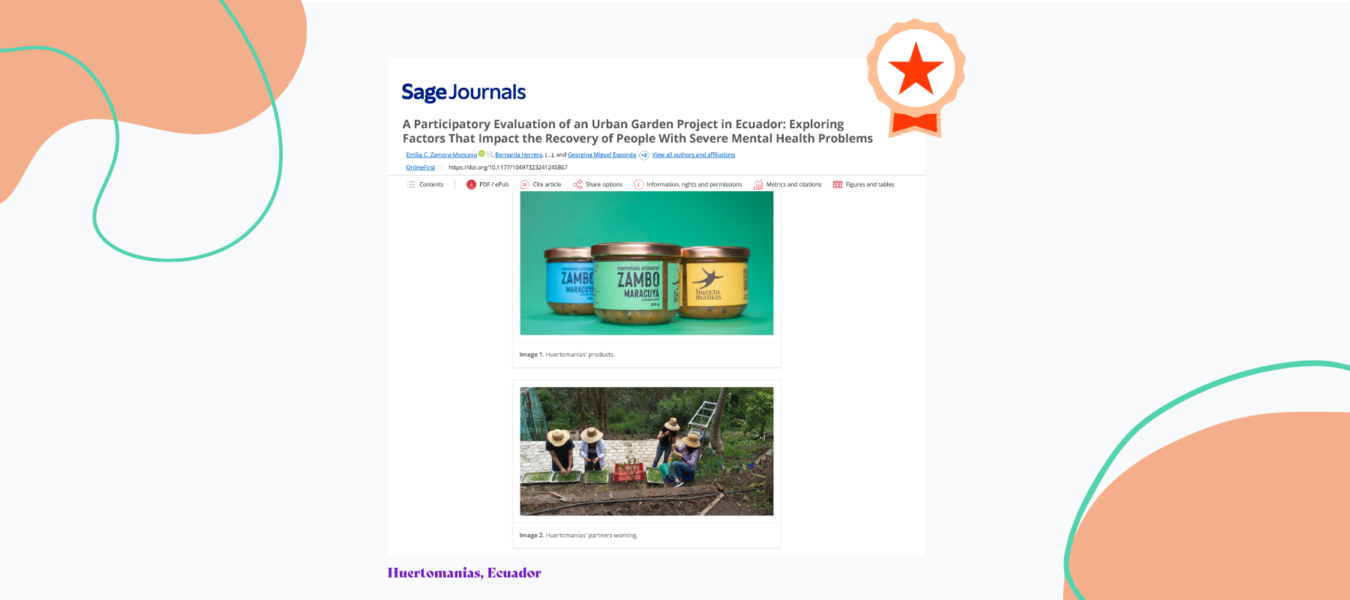Newly Published: The Transformative Power of an Urban Gardening Collective on Mental Health – A Participatory Study on Huertomanías
Aug 19, 2024

A participatory evaluation highlighting the incredible work of Huertomanías in Ecuador has been published in Sage Journals. Through their urban gardening collective, this former Ember investee empowers individuals with severe mental health illnesses by fostering well-being, and community engagement.
The study demonstrates that Huertomanías promotes autonomy, improves mental health, strengthens relationships, transforms family dynamics, and offers social recognition through labour inclusion.
The abstract of the paper here highlights our approach and key findings:
For the past years, Ecuador has been transitioning away from a hospital-based model of mental healthcare to one that is community-centred. However, challenges associated with hospital-based models endure, notably financial burden faced by those with severe mental health problems (SMHPs) due to labour market discrimination. Employment access for this group is often disregarded in policy planning, despite evidence of its benefits on mental health. Huertomanías, an urban garden initiative in Ecuador founded in 2015, works with individuals with SMHPs, providing work, income, and social inclusion. A case study using a participatory approach was carried out to explore factors that impact the recovery of people with SMHPs. Twelve participants engaged in diverse stages of the research, where several participatory activities were conducted including cognitive mapping, a photovoice project, and interviews. The analysis employed a thematic approach leading to four categories of impact within the urban garden: autonomy (financial and personal), interpersonal relations and relation with the environment, mental health, and family dynamics. A final category of impact was established encompassing external factors (family support and public policy and healthcare services) that influence recovery. Findings suggest that the urban garden promotes autonomy and active participation within society, improves mental health, and transforms family dynamics. Further, this study highlights the importance of community-based mental healthcare (CBMHC), emphasising the need of public policies and healthcare in promoting autonomy through employment and community-centred services. Lastly, the study contributes insights into recovery experiences and CBMHC benefits, informing programme development and similar initiatives in Latin America.
You can read the full paper here.
Citation
Zamora-Moncayo EC, Herrera B, Larrieta J, DuBois A, Miguel Esponda G. A Participatory Evaluation of an Urban Garden Project in Ecuador: Exploring Factors That Impact the Recovery of People With Severe Mental Health Problems. Qualitative Health Research. 2024;0(0). doi:10.1177/10497323241245867